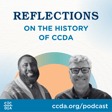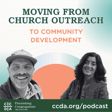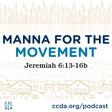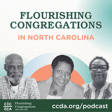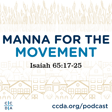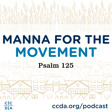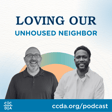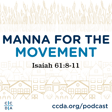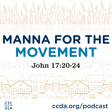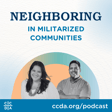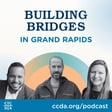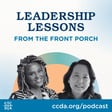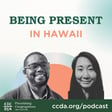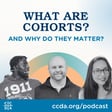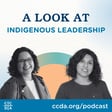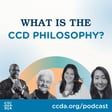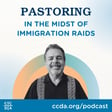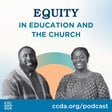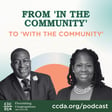
Confronting Narratives about AAPI People
Elizabeth Cronlund is joined by Marie Moy to confront some common narratives about Asian American and Pacific Islander populations. They take a look at some of the history of AAPI in the United States, and reflect on the ways that history informs where we find ourselves today. They also share some ways we can build coalitions and stand in solidarity so we are able to move forward together.
Learn more about CCDA’s AAPI Network at ccda.org/aapi. And make plans to join us at the CCDA Conference this November at ccda.org/conference.
Marie Moy serves as the Director of Operations and is a member of the Restorative Practices training and implementation team at Erie County Restorative Justice Coalition (ECRJC). ECRJC’s mission is to promote racial and social justice through Restorative Practices, providing training, coaching, consulting, and restorative responses, including Restorative Justice Conferencing in lieu of traditional punitive measures. Marie grew up in a small town in northern Indiana, where her parents owned a Chinese-American restaurant. As children, she and her sisters attended an independent Baptist church. Marie first learned of Christian Community Development while attending Renovation Church in Buffalo in 2010. She participated in CCDA’s El Camino del Inmigrante in 2016 with approximately 70 others to bring attention to the plight of immigrants. Marie is a graduate of Northeastern Seminary at Roberts Wesleyan College in Rochester, NY, with an MA in Theology & Social Justice from Indiana University, Bloomington, with a BS in Biochemistry. Marie integrates her background in science and theology to bring just practices to the operations of organizations, and is particularly interested in creating spaces without traditional hierarchy that are inclusive and supportive of marginalized communities. As a second-generation Asian American, Marie is passionate about immigration reform in addition to her work with ECRJC to end mass incarceration and restore relationships and communities. Marie is married with two adult children and a small Cavalier King Charles/poodle mix named Chani. She is a member of the CCDA Board and Leadership Cohort 8, and the John R. Oishei Foundation Karen Lee Spalding Oishei Fellows for Leaders of Color. She is embarking on a sabbatical to spend time with God and an exploration of embodied restorative practices after a long season in nonprofit work.
Based in Orlando, FL, Elizabeth Cronlund is the Partnership Development Manager with UNDIVDED, an organization that is activating communities for racial healing and justice. She has more than 15 years of experience in congregational ministry as a Christian Community Developer. Within CCDA, she helps lead the AAPI Network and is a contributing writer for CCDA’s Education Equity Handbook. Elizabeth is a Certified Nonprofit Professional (CNP) and attends Northern Seminary.
Connect with CCDA on Instagram, Twitter, Facebook, and LinkedIn. Follow CCDA on YouTube.
